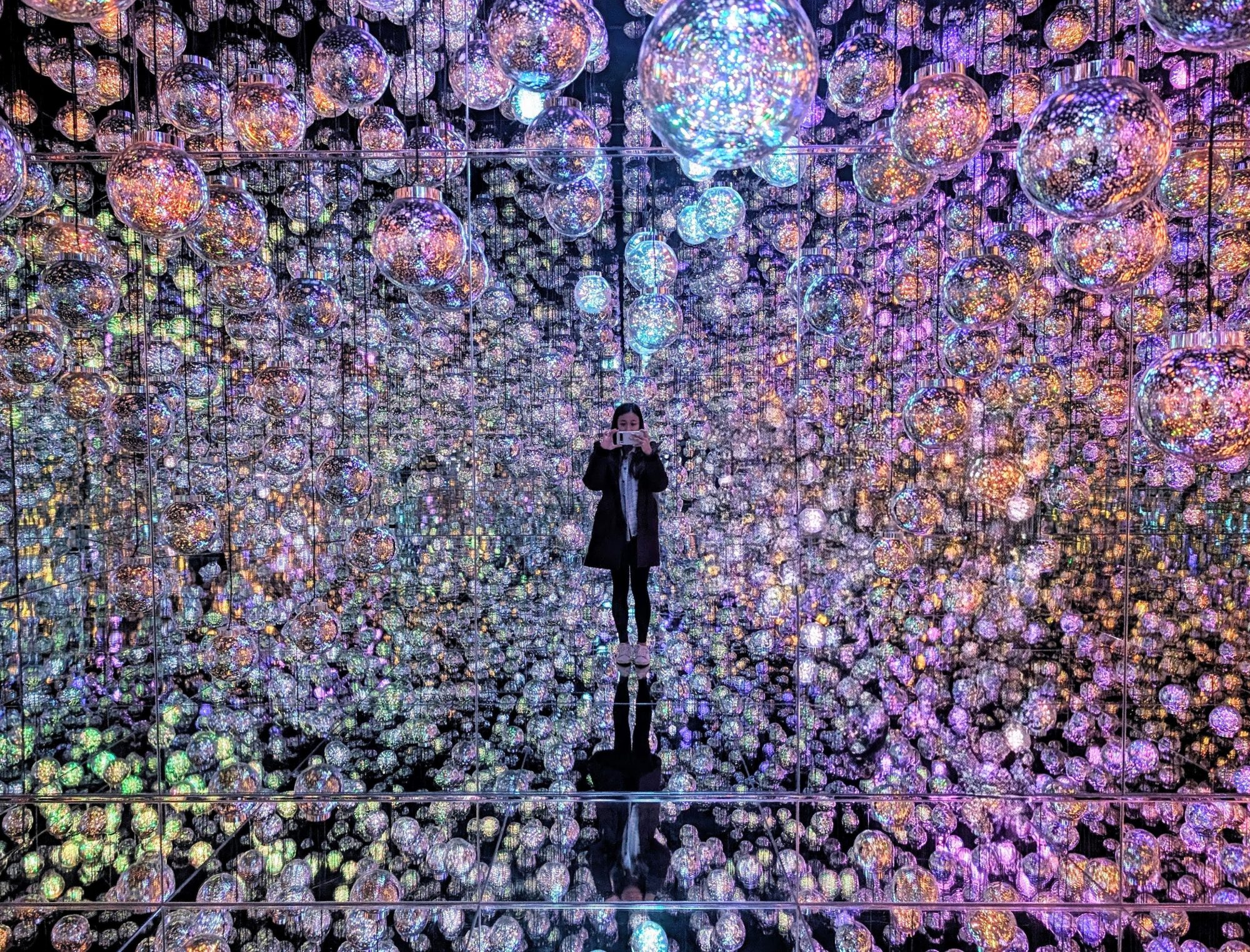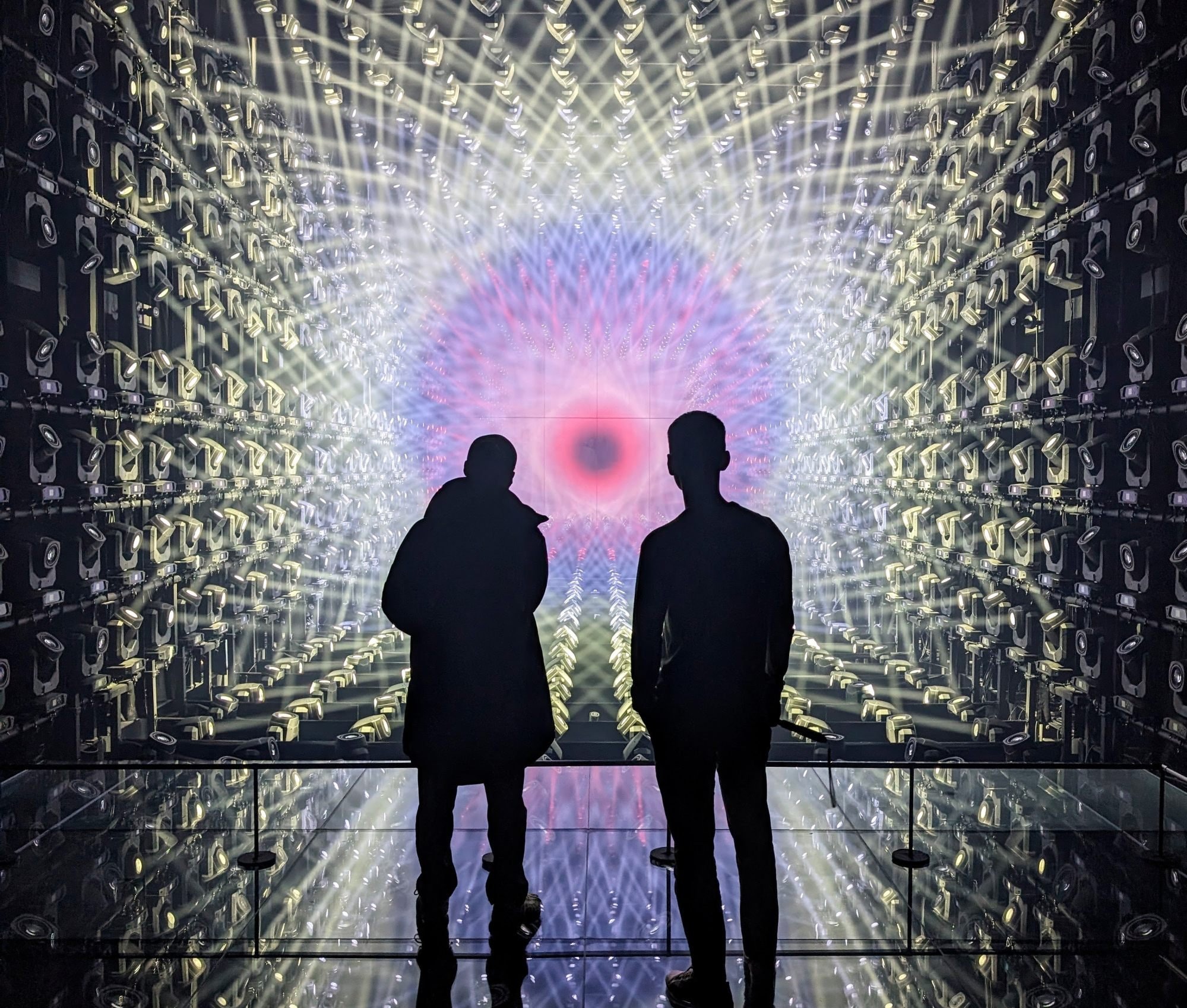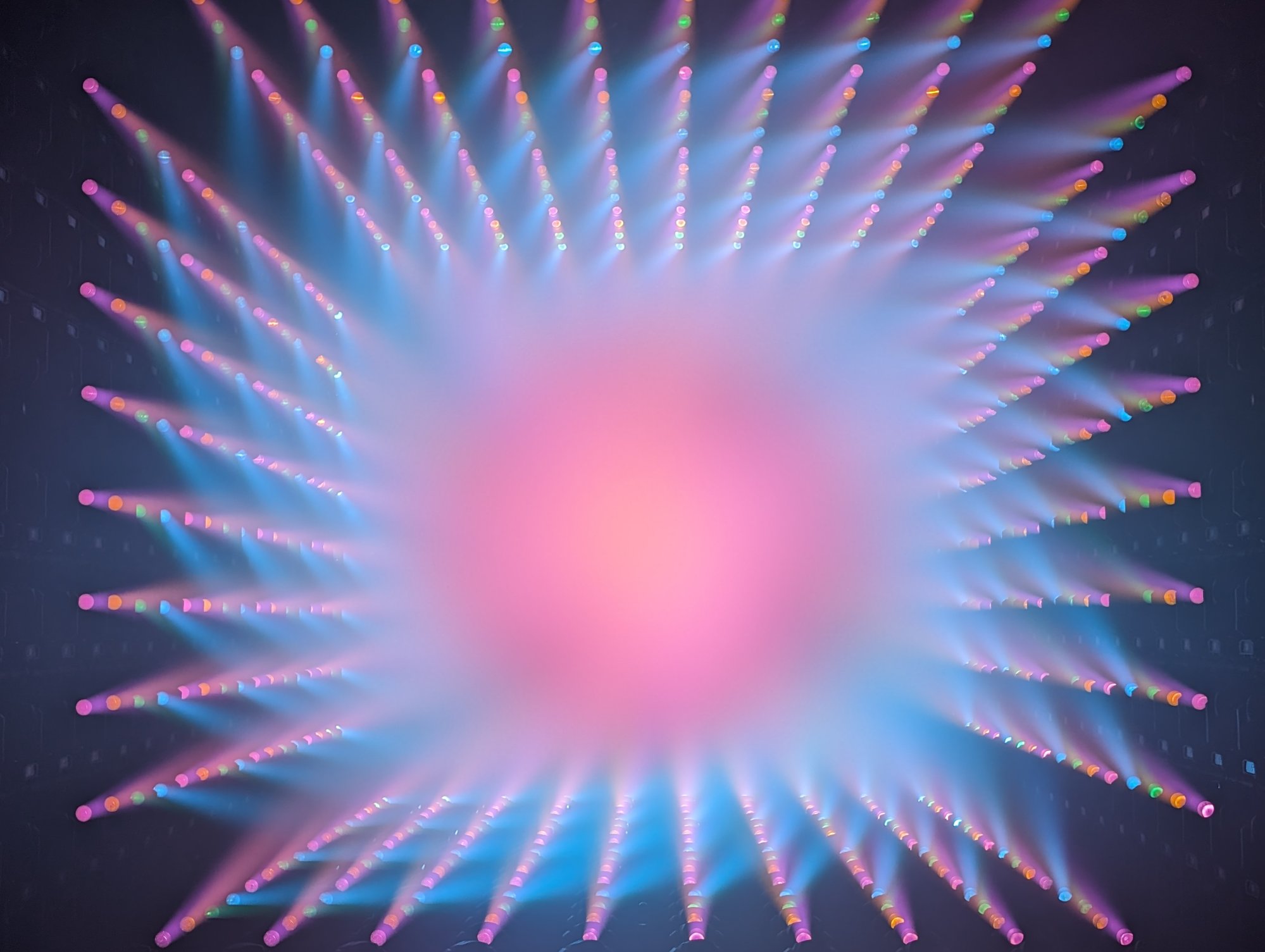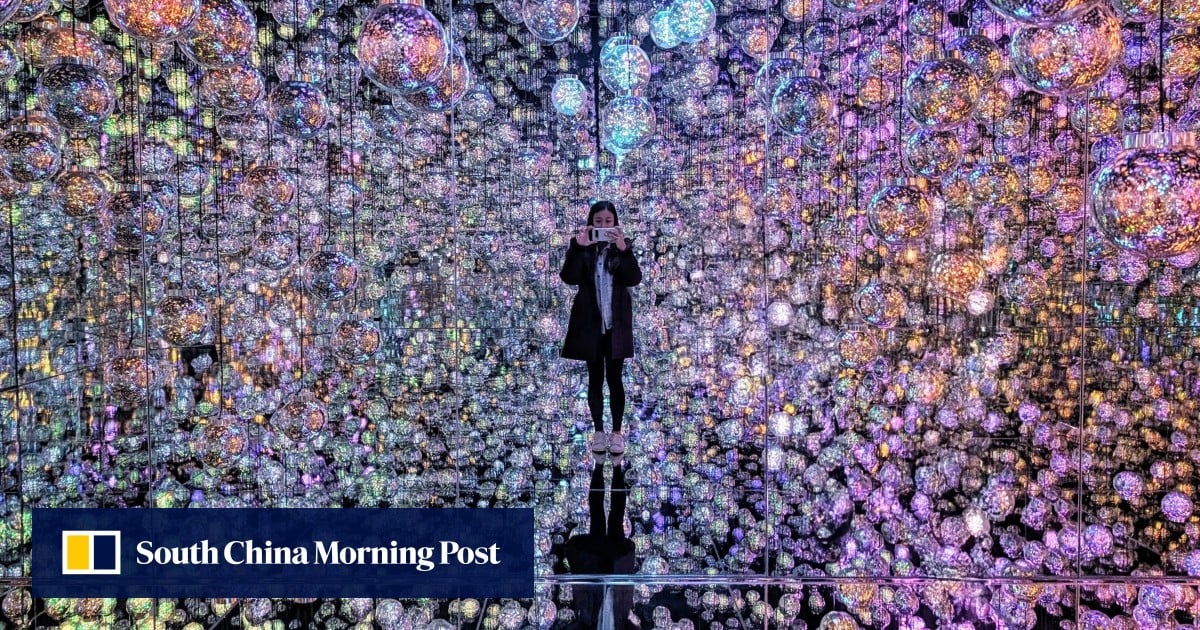Tokyo digital art museum teamLab Borderless closed its doors on the city’s Odaiba artificial island in August 2022. But now it is about to be reborn, in the Azabudai Hills development.
The highly anticipated reopening of the art attraction in its new home in the centre of the Japanese capital takes place on February 9, but the Post was granted a preview tour of the massive new space.
Upon arriving at Kamiyacho Station, I follow the exit signs to Azabudai Hills, a new upmarket lifestyle, residential and business development. A few minutes’ walk away is the museum.
Does M+ show based on East Asian ink landscapes go too far or not far enough?
Does M+ show based on East Asian ink landscapes go too far or not far enough?
The words “teamLab Borderless” plastered high across a wall within a long, concrete corridor turn out to be the first of the museum’s many artworks. A public relations representative explains that the words “come to life” only after being viewed through a camera lens.
I whip out my smartphone and gasp – but I won’t spoil the optical illusion for any future visitors reading this.

The monochromatic hallway leads into the black abyss of a doorway: the main entrance to the museum.
In 2019, I visited teamLab Planets, Borderless’ sister museum in Tokyo. It set the bar extremely high. Would I be equally blown away here?
Any doubts vanish as I step onto carpeted floors and into Light Vortex: an installation consisting of interactive light sculptures that pairs a dizzying flow of bright rays with an ethereal soundtrack.

Whether it’s keeping up with the change of glowing, neon hues or tracking how the light moves across the room, it’s difficult to take one’s gaze off the seemingly infinitely deep display.
I touch a light sculpture moving towards me to turn it into a bright spark that promptly disappears.
Visitors can wander at their own pace throughout the 7,000-square-metre (75,000-square-foot) museum, which houses more than 50 installations. The common theme is the exploration of space, light, time, continuity and borderless existence. TeamLab has created an app for those visitors who wish to learn more about the artworks.

One installation, Microcosmoses – Wobbling Light, appears to transport visitors to another dimension. With reflections bouncing from every direction, I lose any sense of space or boundaries.
The room is lit only by glowing orbs, hundreds of which move continuously in random order along different tracks.
Closely inspect these spheres and you’ll notice changes in colour, speed and even sound, as they respond to the proximity of people.

When the new Tokyo museum opens, it is anticipated that Bubble Universe: Physical Light, Bubbles of Light, Wobbling Light and Environmental Light – One Stroke will be one of the main crowd-pleasers.
As I enter the glimmering mirrored room, hundreds of hanging spheres surround me. The closer I move to a collection of spheres, the brighter they shine.
The light within the bubblelike globes then starts to spread to others, building into a single trajectory of light. It is a very visually appealing piece of art that will no doubt command plenty of attention on social media.
It felt as though I only scraped the surface during my visit, partly because many installations were still being given final touches and were unavailable for viewing.
When I next return to Tokyo, I’ll visit teamLab Borderless again to experience this multisensory and interactive digital art museum to its fullest.

